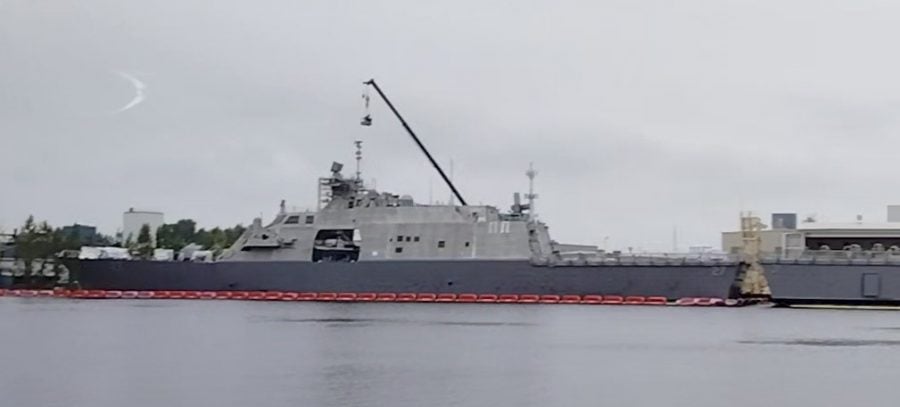
Giridhar Reddy Bojja, new College of Business assistant professor of information systems and analytics, brings academic expertise in management information systems, analytics, and computer science, as well as industry experience as a data scientist and engineer. His hire is part of a College of Business faculty hiring initiative that supports a new curricular emphasis on technology and business analytics.
Bojja comes to Michigan Tech from the University of Central Oklahoma – College of Business, where he was a visiting assistant professor of business analytics. His academic and industry background is well aligned with Michigan Tech’s tech-focused environment.

Giridhar Reddy Bojja, new College of Business assistant professor of information systems and analytics, brings academic expertise in management information systems, analytics, and computer science, as well as industry experience as a data scientist and engineer. His hire is part of a College of Business faculty hiring initiative that supports a new curricular emphasis on technology and business analytics.
Bojja comes to Michigan Tech from the University of Central Oklahoma – College of Business, where he was a visiting assistant professor of business analytics. His academic and industry background is well aligned with Michigan Tech’s tech-focused environment.

The College of Business is pleased to welcome M. Steven Holloway, a new assistant teaching professor of economics.
When he started his PhD, Holloway already knew that he wanted to work for a mid-size state university, preferably in a community with robust outdoor recreational activities.
“Michigan Tech checked both those boxes and brought me closer to my original home of Iowa. When the opportunity arose to work here, it was an easy decision to make,” Holloway says.
Holloway’s primary research investigates intertemporal choice through a behavioral economics lens. He says his interest in the topic stems from his fascination with the human mind.

The College of Business is pleased to welcome M. Steven Holloway, a new assistant teaching professor of economics.
When he started his PhD, Holloway already knew that he wanted to work for a mid-size state university, preferably in a community with robust outdoor recreational activities.
“Michigan Tech checked both those boxes and brought me closer to my original home of Iowa. When the opportunity arose to work here, it was an easy decision to make,” Holloway says.
Holloway’s primary research investigates intertemporal choice through a behavioral economics lens. He says his interest in the topic stems from his fascination with the human mind.

Bo Xiao (CEGE/COB/ICC), Assistant Professor, Construction Management, is the PI on a project that has received a $287,667 research and development grant from the National Science Foundation.
The project is titled “Cyber Training: Pilot: Cognitive and Generative AI-driven Cyber-Infrastructure Training Platform for Construction Education.”
Shane Mueller (PHF/ICC) is a co-PI on this potential two-year project.

Dr. Giridhar Reddy Bojja’s journey from India to the United States, coupled with his extensive academic and professional experience, has positioned him as a leading expert in his field. Bojja is a newly-hired assistant professor in the College of Business.
The following article about Bojja’s research is from Outlook, a current affairs and news magazine from India. By Manish Saini; published August 1, 2024.

Dr. Giridhar Reddy Bojja’s journey from India to the United States, coupled with his extensive academic and professional experience, has positioned him as a leading expert in his field. Bojja is a newly-hired assistant professor in the College of Business.
The following article about Bojja’s research is from Outlook, a current affairs and news magazine from India. By Manish Saini; published August 1, 2024.

by College of Business
Assistant Professors Laura Connolly and Jenny Apriesnig (both COB) and Research Engineer Travis White (GLRC) have completed an analysis of the economic impacts associated with the City of Menominee’s project to deepen the Menominee Harbor.
The economic impact analysis was part of a feasibility study conducted by the city in partnership with the U.S. Army Corps of Engineers. The city contracted with the MTU team to complete the analysis, which was delivered to Menominee officials March 15.
In their final economic evaluation, Connolly, Apriesnig and White provided a brief overview of the Menominee Harbor and the local economic context, then estimated the economic impacts associated with the deepening project for both the Upper Peninsula and northeast Wisconsin, focusing on employment, output and tax revenue.
Across the scenarios considered, the trio found that the majority of the project’s economic impacts are concentrated in northeast Wisconsin, with more modest impacts in the U.P. They highlighted the potential economic gains in the local area if the Menominee Harbor is deepened and the “significant potential losses if the status quo is maintained.”
“The COB faculty have developed a reputation for economic impact studies,” said Dean Johnson, dean of the College of Business. “One of the COB’s goals is making a positive societal impact via our thought leadership. In the last two years, our faculty research expertise has supported the regional economy across the mining, transportation, entrepreneurship and educational sectors.”
Prior to this project, COB faculty completed an economic impact analysis of the Eagle Mine in the U.P. Lundin Mining, the operator of the only primary nickel mine in the U.S., sought out the unique combination of COB faculty expertise in economics, mining, econometrics, data analytics and information systems to establish best practices in mining in relation to regional economic health.